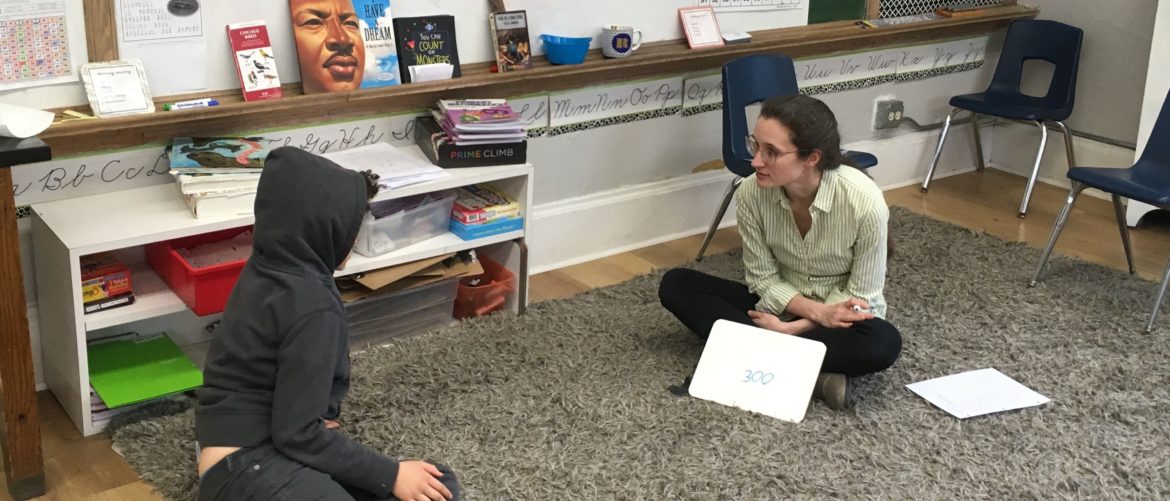I’ve been thinking a lot about trust recently. It’s a quality that suffuses our school, and it makes a difference in so many ways, both big and small.
At Chicago Friends School, students move independently around the school. Yesterday, I was watching over the indoor recess, and when my group changed from the gym to the room for quiet play, I noticed that one student who was supposed to have come with us had not arrived. But there was no moment of worry or anger. I’ve known that student for years, and when someone asked me where he was, I said, “I’m sure he’s gone to the bathroom or to get water.” Sure enough, he walked through the door a minute later and calmly joined his friends’ game. When I describe it that way, it seems so simple! And yet, in many schools, it would have been unacceptable for him to go to the bathroom on his own during a transition.
Yesterday I talked about trust explicitly with a student. His teacher had withdrawn his classroom computer privileges for an hour because he’d gone off task exploring the internet. He voluntarily asked to speak with me about it, because it upset him. Instead of giving him a talking-to about school rules, I got to share my true understanding of the situation with him: he did not have a fund of trust to draw on with regard to computer use. He’d gotten off task before, and so his argument that *this* time it was unintentional had not had weight with his teacher. We talked about how to rebuild trust, how to demonstrate his commitment to adhering to school expectations. He went peacefully back to class, to finish his assignment with the help of a partner instead of a computer.
Over the course of two weeks in February, my class planned a surprise party for me. Right at the beginning of that period, they actually asked me to give them privacy in the classroom for ten minutes. What an unusual request! No class had ever asked me for that before. But as strange as it seemed, to be gently kicked out of the classroom by my fourth graders, I honestly couldn’t think of a single reason not to trust them. I couldn’t imagine them doing something destructive or unsafe or cruel. And when I agreed to give them the ten minutes, the only warning I gave before leaving was about a rather unusual sort of consequence: “If I find out later that you were doing something against school rules, then I will know that I was wrong.” I didn’t fear that anything bad would happen; I just needed them to know that they had asked me for trust. And I trusted that my feelings would matter to them. And… they threw me a party! Talk about having your trust repaid!
But for me, it’s even more powerful that every week, we sit together in Meeting for Community. This is the first year that we’ve followed the Quaker tradition of a mostly silent Meeting. And while I sometimes miss hearing the students’ answers to specific questions, I’ve come to really treasure this time. More and more, I think about trust. Most of the time, as teachers, we are supposed to be guiding our students’ thinking or at least keeping track of it—what are they focusing on, are they understanding the concept, are they on task? And students want to keep track of each other’s thoughts: Are you writing the right thing? At recess, are you imagining the same thing I am? But in Meeting, we sit together quietly, in the belief that whatever each person is thinking about, it is the right thing for them. Instead of control, we practice trust.


Renata McAdams
is our grade 3-4 classroom teacher. She has taught in a variety of public, charter, and independent schools, including a combined 3-5 classroom in Ann Arbor, Mich., for two years. Rentata graduated from Vassar College and received her M.S.Ed. from the University of Pennsylvania. She grew up in Oberlin, Ohio, and moved to Chicago from Philadelphia with her husband (then-fiancé) in August 2014.
In her free time, Renata enjoys singing, acting, dancing, and reading.